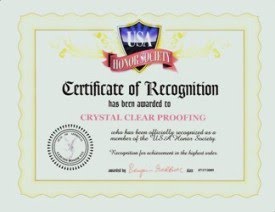
Several words in our language can be spelled as one word or as two, depending on its meaning. Below is a list of a few such words, with sample sentences on how they are used.
Almost - all most
The plane was almost (nearly) three hours late.
We are all most pleased (all very much pleased) with the new schedule.
Already - all ready
The order had already (previously) been shipped.
The order is all ready (all prepared) to be shipped.
Altogether - all together
He is altogether (entirely) too lazy to be a success.
The papers are all together (all in a group) on your desk.
Always - all ways
She has always (at all times) done good work.
We have tried in all ways (by all methods) to keep our employees satisfied.
Anytime - any time
Come see us anytime you are in town, (one word meaning "whenever").
Did you have dealings with him at any time in the past? (Two words after a preposition such as at.)
Anyway - any way
Anyway (in any case), we can't spare him now.
If we can help in any way (by any method), please let us know.
Awhile - a while
One word as an adverb; two words as a noun.
You may have to wait awhile. (Adverb.)
You may have to wait for a while. (Noun; object of for.)
Everyday - every day
You'll soon master the everyday (ordinary or daily) routine of the job.
He has called every day (each day) this week.
Into - in to
He walked into the outer office. (Into implies entry.)
He came in to see me. (In is part of the verb phrase came in; to is part of the infinitive to see.)
Indifferent - in different
She was indifferent (not caring one way or the other) to the offer.
He like our idea, but he wanted it expressed in different (in other) words.
Maybe - may be
Maybe is an adverb; may be is a verb.
If we don't receive a letter from them today, maybe (an adverb meaning perhaps) we should call.
He may be (a verb) out of town next week.
Onto - on to
He lost control of the car and drove onto the sidewalk. (Onto implies movement toward and then over.)
Let's go on to the next problem. (On is an adverb in the verb phrase go on; to is a preposition.)
Someday - some day
Please set up a meeting with them someday next week.
Please set up a meeting with them for some day next week. (Two words when used as the object of a preposition such as for.)
Sometime - some time
The order will be shipped sometime (at some unspecified time) next week.
It took me some time (a period of time) to complete the job.
Whoever - who ever
Whoever (anyone who) is elected secretary should write that letter at once.
Who ever made such a statement? (Ever is an adverb.)
At times you'll find two words spelled as one, and the resulting one word is not a word at all, (a good example is alot). Our language has many such situations, rules, and exceptions to rules. This is why many people feel intimidated and frustrated by grammar.
Source: The Gregg Reference Manual

































































Great list! I'm on top of most of these now, although "onto" still bothers me sometimes.
ReplyDeleteI hate "anymore" since in US English this is written as one word, but elsewhere "any more" is standard. I often use the US version (because I prefer it).
Excellent list. I run in to these all the time like everyday as an editor. (wink)
ReplyDeleteMarvin D Wilson
Karen: I'm so glad my posts are helping!
ReplyDeleteMJ: There are SO many differences, as I'm sure you're aware, between British and American English. I could do several posts on that topic alone!
Marvin: One of the greater pleasures of being an editor, isn't it? LOL!
I've got one more... most of these I am good at but what about alright/all right? (I have a friend beta-reading and she doesn't like my use of 'alright' which I use far more generically than she likes (most frequently something like "are you alright?")
ReplyDeleteI have one clarification question: "whoever" and "whomever" - could you tell us the appropriate usage of both? I think I know the difference but I'd appreciate your professional definition. I would have guessed "whomever" to be appropriate in the sentence you used here.
ReplyDeleteMichele
SouthernCityMysteries
Hart: Excellent question.
ReplyDelete"Alright" is a variant spelling of "all right," but is considered nonstandard. It's almost like grammatical slang. The one word version, though somewhat common, is considered by many people to be wrong or less acceptable than "all right."
"All right," as two words, is the appropriate and grammatically correct version.
Great reminders, Crystal!
ReplyDeleteElizabeth
Mystery Writing is Murder
Michelle: I actually did a post on "Who and Whom." I checked the archives and it was posted on October 6. You can click on that or, to copy and paste the direct link, the url for that post is:
ReplyDeletehttp://crystalclearproofing.blogspot.com/2009/10/who-and-whom.html :)
Elizabeth: Thank you!
Running behind in my blog rounds today. Another great post. I'm like Hart, I use "alright" way more than I should and probably other grammar slang as well.
ReplyDeleteI have developed a strong hatred of alot, an unfortuante product of correcting student work. Thanks for sharing this list and clarifying these points.
ReplyDeleteYou have such interesting post. Thanks
ReplyDelete